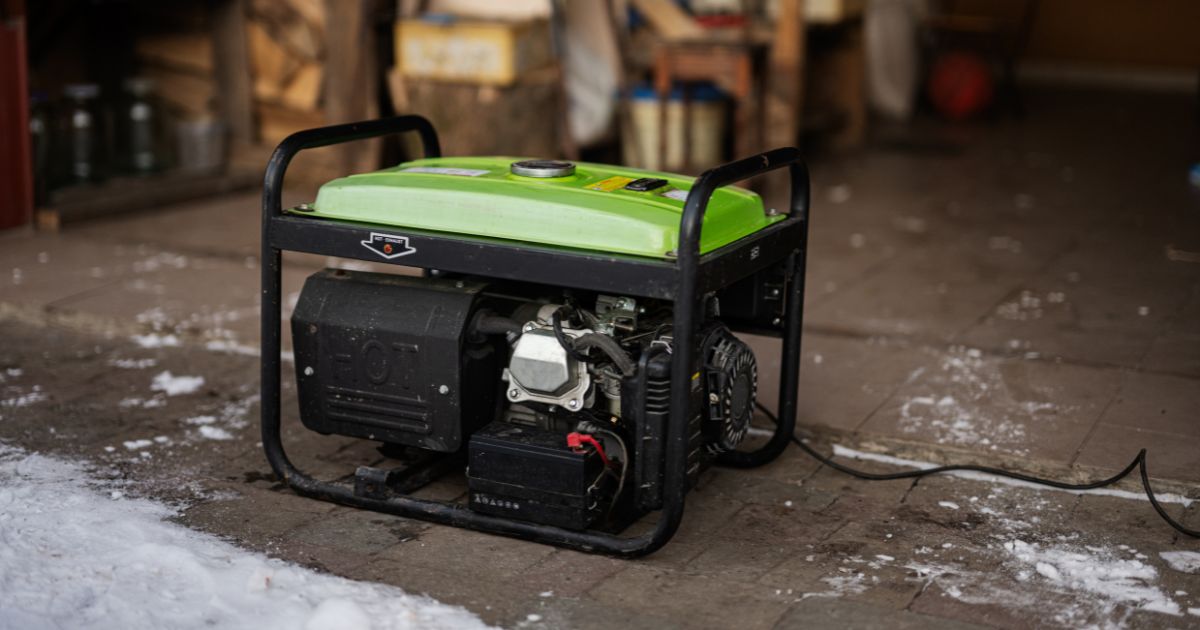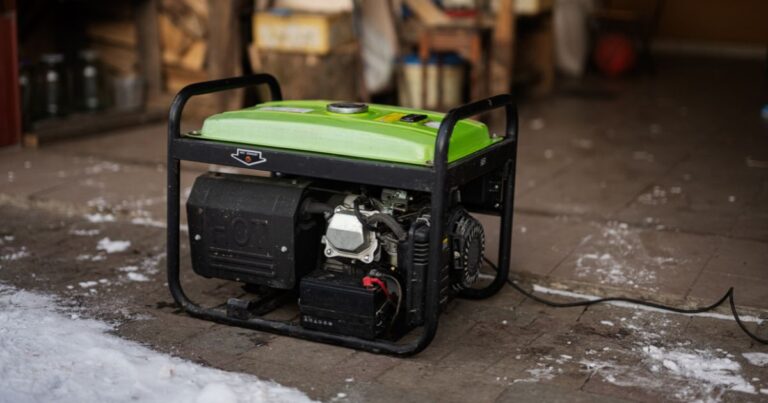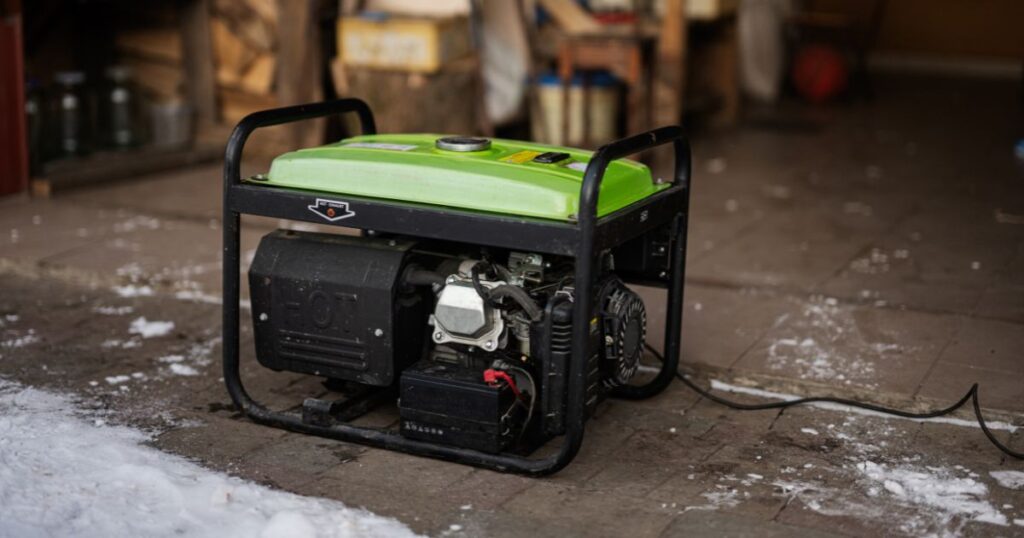
Generator Wattage Calculator
Generator Wattage Calculator
| Appliance | Quantity | Wattage |
|---|---|---|
| Refrigerator or Freezer (Energy Star) | 192 | |
| Microwave Oven | 1000 | |
| Incandescent Lights | 60 | |
| Furnace Fan, gas or fuel oil | 300 | |
| Television | 300 | |
| Coffee Maker | 600 | |
| Dishwasher (Cool Dry) | 216 | |
| Electric Fry Pan | 1500 | |
| Electric Range (8-inch element) | 2100 | |
| Automatic Washer | 1200 | |
| Clothes Dryer (Electric) | 5400 | |
| Radio | 200 | |
| Sump Pump | 800 | |
| Air Conditioner (10,000 BTU) | 1500 | |
| Computer | 250 | |
| Monitor (LCD style) | 30 | |
| Printer | 600 | |
| Hot Water Heater | 4500 | |
| Garage Door Opener | 720 | |
| DVD Player | 350 | |
Selecting the right generator for your home, office, or job site can be overwhelming. From calculating the wattage needs to ensuring safe margins for future appliances, there’s a lot to consider. That’s where the Generator Wattage Calculator comes in.
This robust, easy-to-use online tool makes it easier than ever to quickly estimate how much of an impact your appliances are having with the ability to input your own appliances, quantities and wattages — the tool will output a precise total wattage estimate, as well as a clear, visual pie chart indicating appliance breakdown.
This guide goes into much greater detail on how to correctly use the tool, how generator watts are calculated, what types of influences there are on power requirements, as well as how to become comfortable in purchasing a generator.
What is Generator Wattage and Why It Matters
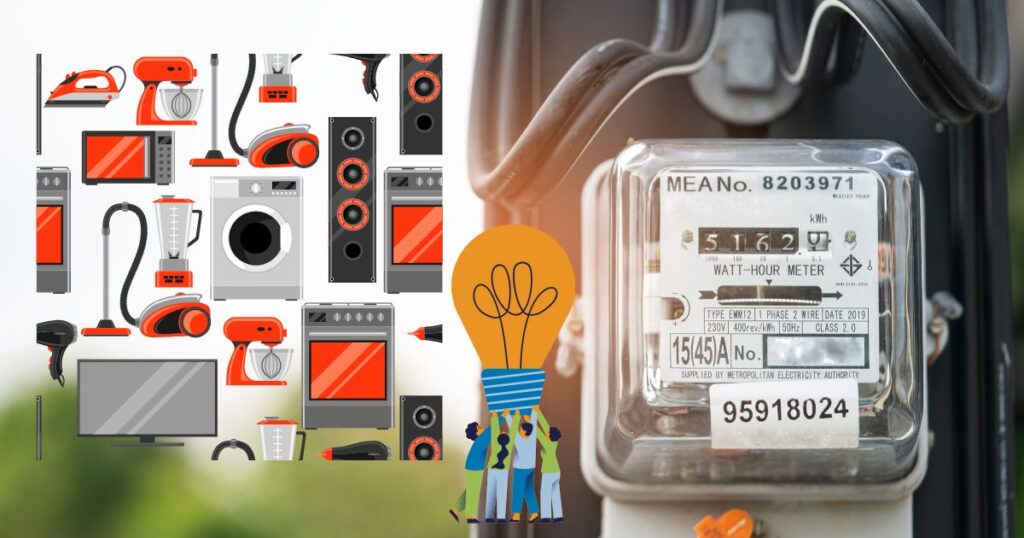
The amount of electrical power your devices consume is measured in wattage. An appliance’s wattage rating is a measure of how much power it requires. This is important for:
- Avoiding generator overload
- For all main appliances to run all at once
- There protecting equipment from sensitive damage
- Approximating of the fuel costs and run-time of generator
Understanding the Two Types of Wattage
| Wattage Type | Description |
|---|---|
| Running Wattage | The continuous power needed to keep an appliance running |
| Starting Wattage | Additional power needed when the appliance starts (especially motors, ACs) |
For instance, a refrigerator may need 192 running watts, but 1200 starting watts temporarily. One of the most common mistakes is ignoring starting watts.
How the Generator Wattage Calculator Works

This tool was designed for simplicity and precision. Here’s how it functions:
- User Inputs: Select or add appliances, input quantities, and set their wattages.
- Calculation: The tool calculates total power consumption by multiplying the quantity and wattage.
- Result Display:
- Total Wattage Required is shown.
- Pie Chart displays how much each appliance contributes to the total.
- Expert Tips and Summary box provides practical advice.
Why Visualization Enhances Decision-Making
The inclusion of a pie chart is not just aesthetic. Visualization offers:
- Quick comprehension of wattage distribution
- Easy identification of high-power devices
- Better planning for priority devices in emergencies
Step-by-Step Guide to Using the Calculator
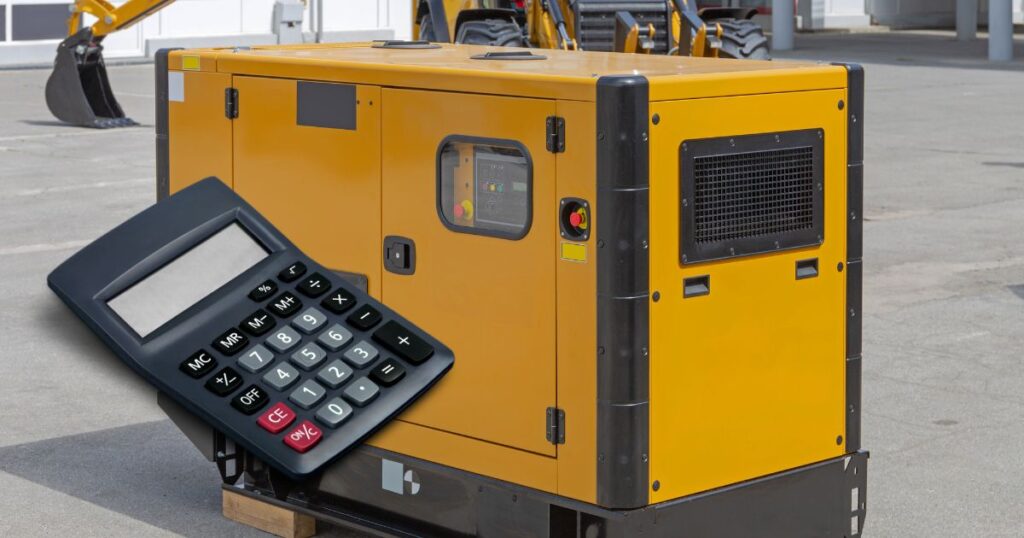
1. Review the Pre-Listed Appliances
These include standard home and office items like:
| Appliance | Typical Wattage |
|---|---|
| Refrigerator | 192 W |
| Microwave Oven | 1000 W |
| Clothes Dryer | 5400 W |
| Air Conditioner (10k BTU) | 1500 W |
Each can be adjusted based on your quantity.
2. Add Custom Devices
You can add up to three custom items by entering:
- Name of appliance
- Quantity
- Wattage
3. Click “Calculate Total Wattage”
This will instantly:
- Sum up total wattage
- Update the wattage pie chart
- Show a helpful summary and expert tips
4. Copy or Share Results
Use the provided buttons to:
- Copy to clipboard: for notes or sharing via messaging
- Email report: instantly share via your default email client
Interpreting the Results
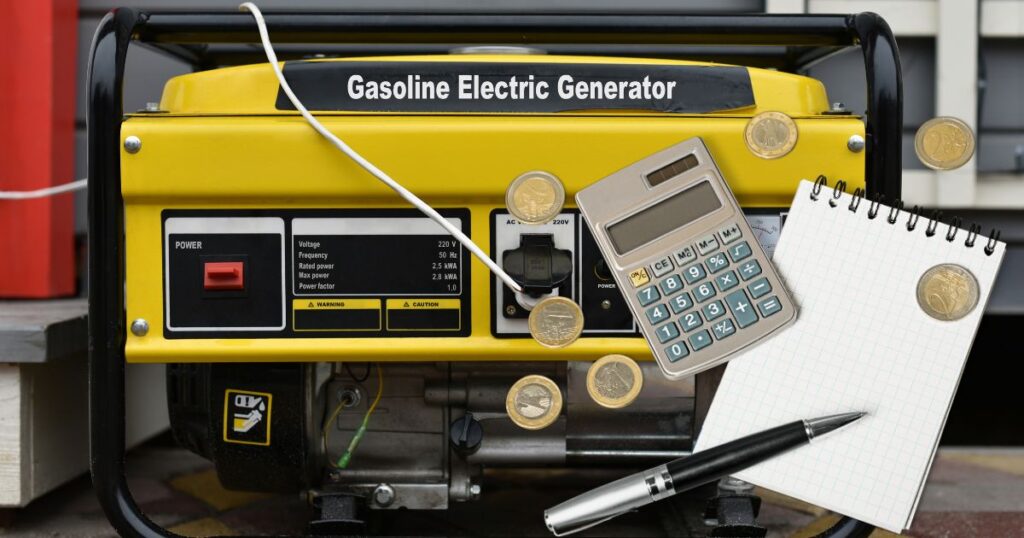
Total Wattage
The total is the minimum required generator size in watts. However, to ensure performance:
Recommended Generator Size = Total Wattage + 20% buffer
Pie Chart Breakdown
Each color-coded segment shows the percentage contribution of individual appliances, which helps:
- Identify major power consumers
- Prioritize appliances in power-constrained scenarios
- Evaluate where energy-saving upgrades could help
Common Wattage Requirements Table
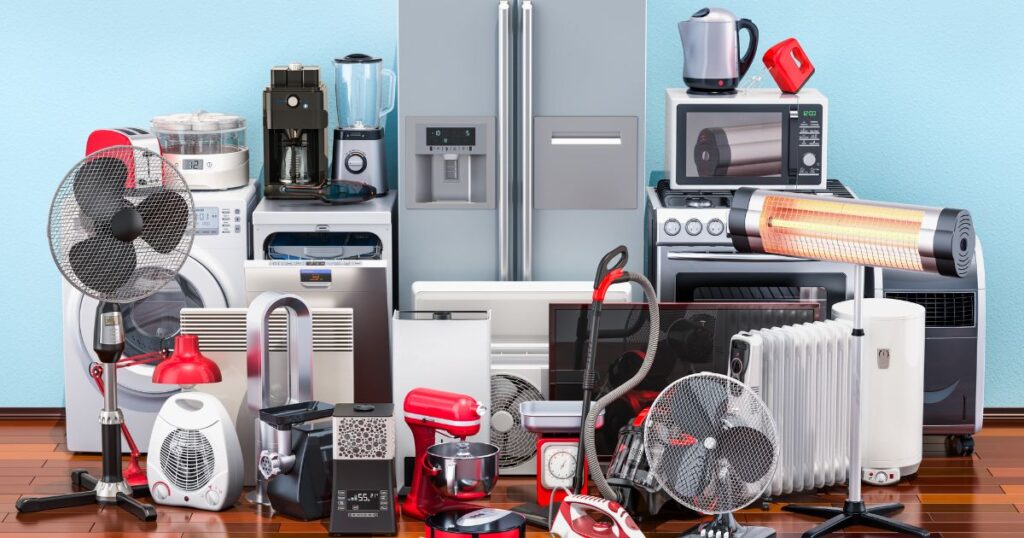
| Appliance | Running Watts | Starting Watts |
|---|---|---|
| Refrigerator (Energy Star) | 192 W | 1200 W |
| Microwave Oven | 1000 W | 1000 W |
| Incandescent Light | 60 W | 60 W |
| Sump Pump | 800 W | 1300 W |
| Clothes Dryer (Electric) | 5400 W | 6750 W |
| Air Conditioner (10,000 BTU) | 1500 W | 2200 W |
How to Choose the Right Generator
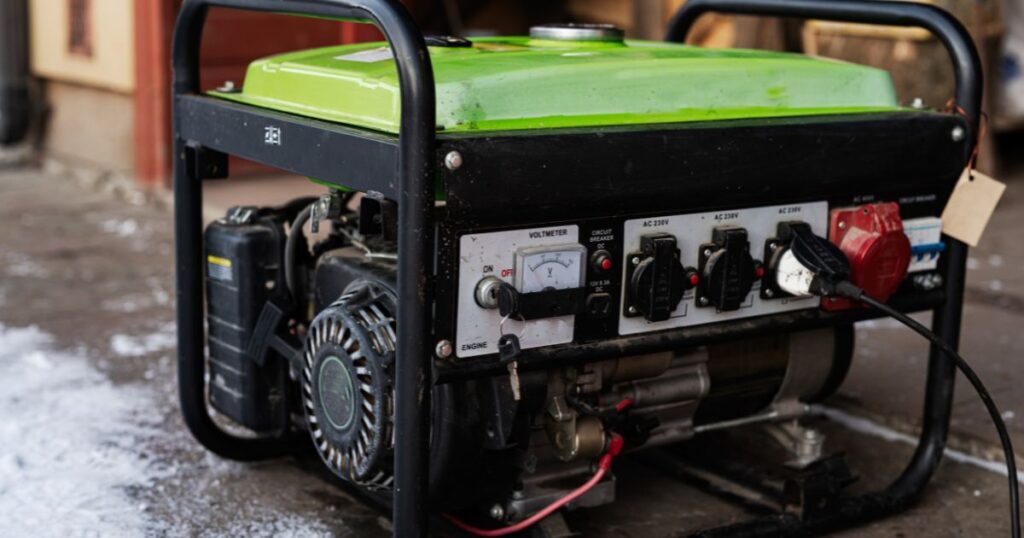
Once you’ve calculated total wattage, choose a generator that meets or exceeds this. Consider the following:
| Generator Type | Ideal For | Wattage Range |
|---|---|---|
| Portable Generators | Home backup, camping, tailgating | 1000W – 8000W |
| Inverter Generators | Electronics, sensitive devices | 1000W – 4000W |
| Standby Generators | Whole-house backup | 8000W – 20000W+ |
Always choose a generator rated at least 20% higher than your total need.
Key Safety and Efficiency Tips
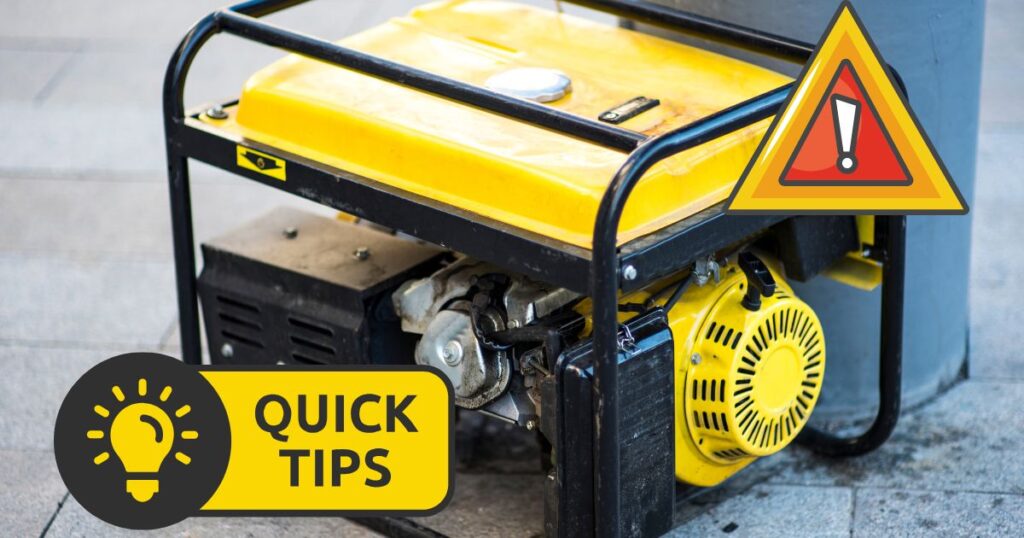
- Don’t overload your generator — use no more than 80% of rated wattage
- Easily link with a transfer switch to reach your home circuit safely
- Do not use gas powered generators inside and away from windows to prevent carbon monoxide poisoning
- Change the oil, check the air filters, and inspect the spark plugs regularly
Real-World Use Case
Scenario: A homeowner wants to run essentials during a power outage.
| Appliance | Quantity | Wattage | Total |
|---|---|---|---|
| Refrigerator | 1 | 192 | 192 |
| Microwave | 1 | 1000 | 1000 |
| Lights | 5 | 60 | 300 |
| Sump Pump | 1 | 800 | 800 |
| Television | 1 | 300 | 300 |
| Laptop + Router | 1 | 250 | 250 |
| Total Wattage | — | — | 2842 |
Recommended Generator Size = 2842 + 20% buffer ≈ 3400 watts
Advantages of Using the Generator Wattage Calculator

| Feature | Benefit |
|---|---|
| Interactive table | Add or adjust appliances easily |
| Visual Pie Chart | Intuitive understanding of power use |
| Responsive design | Mobile-friendly, works across devices |
| Copy/share functionality | Easy reporting and planning |
| Expert recommendations | Helps avoid common mistakes |
Reference Wattage Sources
To maintain high authority and reliability, wattage values used in this calculator are based on:
- U.S. Department of Energy – energy.gov
- Energy Star Appliance Ratings – energystar.gov
- Honda Generators Wattage Guide – powerequipment.honda.com
These references ensure that the wattages provided are aligned with industry standards and real-world performance expectations.
Final Thoughts
The Generator Wattage Calculator is much more than a tool to work out what size generator you need! By providing:
- Accurate calculations
- Visual representation
- Actionable recommendations
— it assists them in making educated decisions and avoiding expensive mistakes so that they only choose the generator that can best satisfy their requirements.
Use this tool prior to purchasing a generator, preparing for a storm, or working on a job site. With increasing electricity needs and inclement weather, power back-up can no longer be a luxury, it’s a necessity.
FAQs for Generator Wattage Calculator
-
What is a generator wattage calculator?
A generator wattage calculator is an online application that can give you an idea of what you need and that will estimate the total amount of watts for the appliances you’ll be using in your home. It enables you to enter number and wattage of the appliances to estimate the minimum generator size required.
-
Why is it important to calculate wattage before buying a generator?
Calculating wattage ensures you select a generator that can safely power all your appliances without overloading. Choosing a generator with insufficient capacity can cause power interruptions or damage to your devices.
-
How does the calculator account for starting and running wattage?
Some appliances, such as refrigerators or pumps, need extra power at startup than during operation. A decent wattage calculator will tell you to think about starting watts and running watts and recommend a generator with a little extra capacity to accommodate surges.
-
Can I use this calculator for both residential and commercial generators?
Yes, the calculator can estimate wattage requirements for any setup. However, for large commercial or industrial needs, consulting a professional is recommended to ensure safety and compliance with electrical standards.
-
What factors should I consider besides wattage when choosing a generator?
Beyond overall wattage, also take into account what kind of generator you want (inverter vs. conventional), fuel type, noise level, runtime and extra features such as automatic start. These are the factors that determine performance, convenience and specificity to the requirements.

